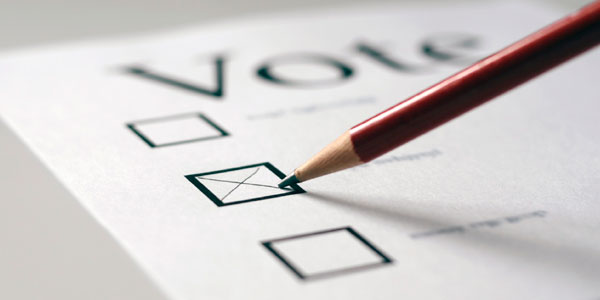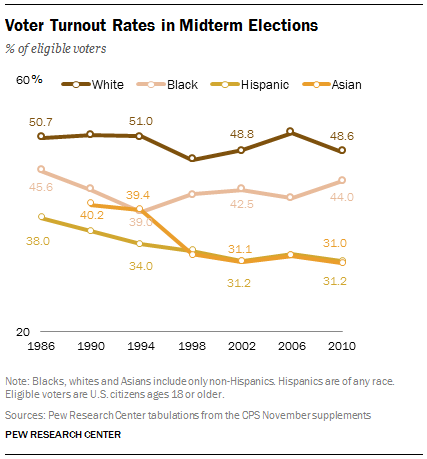 Despite Asian Americans complaining about being treated badly politically with bills like SCA5, they simply haven’t been turning out to vote. This analysis of Census Data from the Pew Research Center says that over time, Asian American turnout is about 33% lower than whites percent and Blacks by 25%, at the same level as Hispanics. The trend since 1990 seems to be steadily be getting worse. The most commonly cited reason for not voting: “too busy.”
Despite Asian Americans complaining about being treated badly politically with bills like SCA5, they simply haven’t been turning out to vote. This analysis of Census Data from the Pew Research Center says that over time, Asian American turnout is about 33% lower than whites percent and Blacks by 25%, at the same level as Hispanics. The trend since 1990 seems to be steadily be getting worse. The most commonly cited reason for not voting: “too busy.”
 Some might argue that mid-term elections are not a good measurement, but I think it is since it shows commitment to the whole democratic process, not only when interest is increased during presidential elections or congressional elections. While increased voting correlates with higher levels education, Asian American voting lagged compared to white voters of similar education. Increased voting also correlates with higher income, but higher income Asian Americans also lag higher income white voters.
Some might argue that mid-term elections are not a good measurement, but I think it is since it shows commitment to the whole democratic process, not only when interest is increased during presidential elections or congressional elections. While increased voting correlates with higher levels education, Asian American voting lagged compared to white voters of similar education. Increased voting also correlates with higher income, but higher income Asian Americans also lag higher income white voters.
Why does this matter? Despite increasing population and income, Asian Americans and their interests will suffer from the lack of political power coming from voting. Public higher education in California is an example. While some Asian Americans may be delighted with stopping SCA5, the number of total slots for Californians is shrinking, with more and more out of state students being admitted because they pay higher rates, which is needed since state support of UC and Cal State has been steadily shrinking. Rather than fighting to maintain a percentage of a shrinking amount of slots, political muscle will be needed in order to improve state support (white voters in California seem unlikely to pay more for the education of the nonwhite majority, especially when they hear about how demographics have changed). Low voter turnout is not going to do it.
(graphic credit: Pew Research Center)








